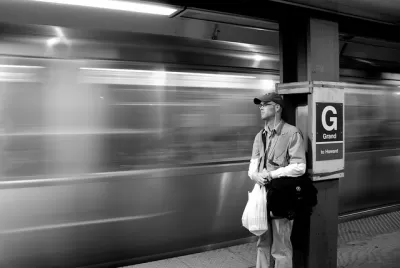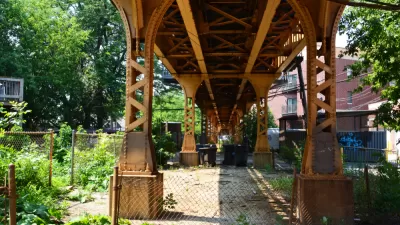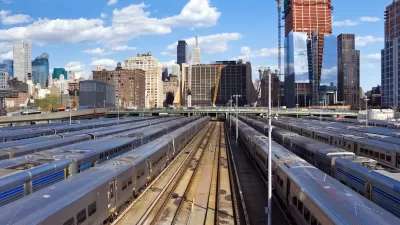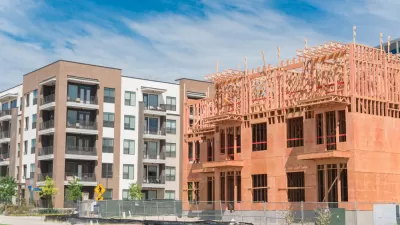The city of Chicago is focusing its development incentives around transit stations, but the people moving into those neighborhoods tend to be wealthier than previous residents.

"Some Logan Square residents are worried that new high-end apartments being built under a city ordinance aimed at promoting development near transit may be accelerating gentrification and pushing lower-income people farther away from the trains," according to an article by Mary Wisniewski.
According to the narrative arc of the article, Chicago is failing to live up the example in transit oriented development set by cities like New York, Philadelphia, Boston and San Francisco. "The Chicago area, meanwhile, saw a decline in development near transit relative to growth in the larger region, the study found." Further limiting the potential of the city's new transit oriented development to be a source of social equity is the growing affluence of new transit area residents as new projects come online. "[The] average household income in transit zones increased by 27 percent from 2000 to 2010," according to Wisniewski.
The article also allows Yonah Freemark to explain how new developments in the area of transit tends to be more expensive because they are new, also arguing that displacement might have been much worse if not for the new development. Freemark is quoted directly: "Displacement occurs more often when there's no construction at all — if you don't build new housing, all the wealthy people will move into existing housing stock….That's what we saw in Wicker Park and Lincoln Park."
The city of Chicago has thrown a fair amount of policy resources at transit oriented development (TOD) in recent years. The city expanded its TOD Ordinance in September 2015, and the Metropolitan Planning Council released a new "TOD Calculator" earlier this year.
FULL STORY: New buildings near 'L' mostly aimed at well-to-do

Trump Administration Could Effectively End Housing Voucher Program
Federal officials are eyeing major cuts to the Section 8 program that helps millions of low-income households pay rent.

Planetizen Federal Action Tracker
A weekly monitor of how Trump’s orders and actions are impacting planners and planning in America.

Ken Jennings Launches Transit Web Series
The Jeopardy champ wants you to ride public transit.

Driving Equity and Clean Air: California Invests in Greener School Transportation
California has awarded $500 million to fund 1,000 zero-emission school buses and chargers for educational agencies as part of its effort to reduce pollution, improve student health, and accelerate the transition to clean transportation.

Congress Moves to End Reconnecting Communities and Related Grants
The House Transportation and Infrastructure Committee moved to rescind funding for the Neighborhood Equity and Access program, which funds highway removals, freeway caps, transit projects, pedestrian infrastructure, and more.

From Throughway to Public Space: Taking Back the American Street
How the Covid-19 pandemic taught us new ways to reclaim city streets from cars.
Urban Design for Planners 1: Software Tools
This six-course series explores essential urban design concepts using open source software and equips planners with the tools they need to participate fully in the urban design process.
Planning for Universal Design
Learn the tools for implementing Universal Design in planning regulations.
Heyer Gruel & Associates PA
Ada County Highway District
Institute for Housing and Urban Development Studies (IHS)
City of Grandview
Harvard GSD Executive Education
Toledo-Lucas County Plan Commissions
Salt Lake City
NYU Wagner Graduate School of Public Service





























